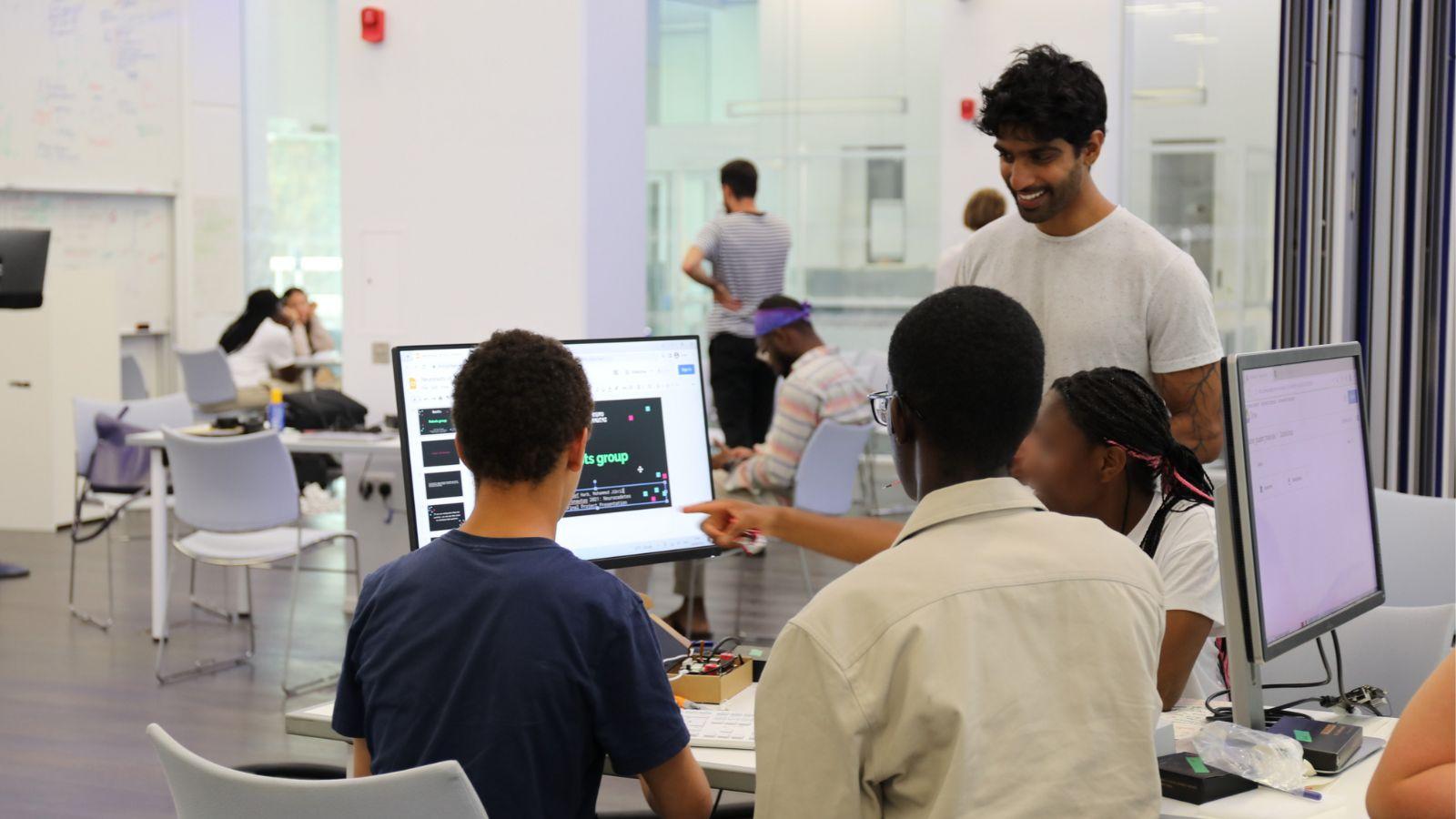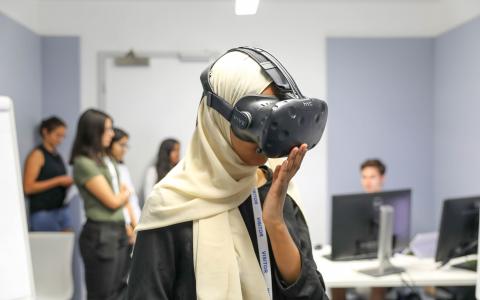
Neuronauts: the foundation of a neuroscience summer camp at SWC
By Jai Bhagat and the Neuronauts team
A well-known koan considers the falling tree: “if a tree falls in a forest, but no one hears it, does it make a sound?” A similar koan could be made considering practicing scientists: “if scientists make a discovery or create a technique, but fail to share it, does it have any impact?” A fight against the central clause in this koan - a fight for meaningful, impactful science - was the foundation for Neuronauts.
The history of Neuronauts is fairly long, but straightforward. Since finishing my Bachelor’s degree in Neuroscience I’ve had a strong desire to become more involved with teaching and outreach because frankly I believe there is no science without dissemination and public engagement. I’ve also realised that there are many people who enjoy science but have not been exposed to the same opportunities I have, and I wanted to create a programme that would be open to students from varying backgrounds with the only prerequisite being a keen interest in science.

Within the Neuroscience community at UCL, and particularly at SWC, I was very happy to find that many like minds shared these sentiments. During the summer of 2020 I had conversations with Lauren Wool, Philip Coen, David Orme, Adam Kampff, as well as Goncalo Lopes and Danbee Kim of NeuroGEARS, that culminated in the idea of hosting a two-week neurobioengineering summer camp targeted towards early secondary school students across Greater London.
I was further very pleased to learn that the SWC as an institution wished to foster this culture, from the Executive Team (in particular Tom Mrsic-Flogel and Tom Otis) to then first year Ph.D. students Sarah Elnozahy and Margarida Pexirra, and many other students, researchers, and staff alike: Ella Svahn, Svenja Nierwetberg, Dammy Onih, Bruno Cruz, April Cashin-Garbutt, Hyewon Kim, and Karen Fergus. We were delighted to receive support from the SWC Public Engagement Fund and also UCL’s Access and Widening Participation (AWPO), and help from Rebecca Kelly and Caroline Fionda Dedman.

Neuronauts was thus conceived with two main goals: 1) to share our enthusiasm for science and engineering with our students; 2) to influence our students to consider University majors and even careers in Neuroscience and other STEM fields.
Starting from these first principles and with much inspiration from the SWC Ph. D bootcamp and a sister predecessor course taught in Lisbon, we decided on a curriculum that would emphasise teaching core concepts in Electrical Engineering & Computer Science (EECS) and Neurobiology during week one, such that the students could use this knowledge to imagine, design, run, and analyse data from their own experiments during week two.
In the EECS curriculum we covered introductory topics in electromagnetism, electronic circuit design, sensors and motors, computer systems and architecture, and programming in Bonsai and Python. In the Neurobiology curriculum we covered topics in cellular neuroanatomy - including major neuron types by structure and function - cellular neurophysiology - including resting, graded, and action potentials, and neurotransmitter dynamics and kinematics - and systems neuroscience - including memory, decision-making, and reward systems in the mammalian brain.

We were able to accept ten extremely bright, enthusiastic, imaginative students, who, armed with this new knowledge, brainstormed project ideas based on their own interests. They naturally fell into three groups: one engineered an enclosure to monitor squirrel and pigeon feeding and aversion responses by combining motion capture and automated reward delivery, a second group sought to condition ducks using a simple robotic arm and speaker set-up that paired food delivery with a particular sound, and a third group assessed the effects of emotionally charged videos on human volunteers. To run their experiments, all students were given their own “neurokit” to keep, consisting of: a LattePanda microcomputer, screen, keyboard, mouse, two-wheel robot, and electronics starter kit. Additionally, shared items included multimeters, sensor kits, EMG sensors, and USB cameras, and they were able to use the SWC Fabrication Lab for some custom engineering, such as laser-cutting acrylic for the squirrel/pigeon enclosure, and radial arm-sawing aluminum for the robotic arm.
The camp culminated in final presentations and a graduation ceremony. We had over 50 people in attendance, including the students’ friends and family, SWC researchers, and even SWC Group Leaders and Staff. We received overwhelmingly positive and incredibly heartwarming feedback from all involved. Some quotes from the students included: "I have never been so motivated to wake up early in the morning to learn"; “This has been the best part of my summer”; “Thank you so much for taking the time to share your knowledge and skills… you have really helped me consider what careers [there] could be for me.” Additionally, multiple group leaders told us they were very impressed, and one said “It was by far the most inspiring event I have seen at the SWC.”
A tremendous amount of “behind-the-scenes” logistics work also took place to make Neuronauts such a success, and I’d like to take this opportunity to additionally thank the following SWC teams: Building Facilities, Stores, Advanced Manufacturing, IT, Brasserie, and Security. Thanks also to our funders UCL AWPO and SWC Public Engagement Fund.
Based on this successful and extremely promising inaugural programme, we are excited about the prospect of holding annual 2-week summer camps, and also extending Neuronauts into an annual school club that takes place during the school year. If you would like to find out more about Neuronauts, please visit our webpage or feel free to reach out! Neuronauts@ucl.live.ac.uk



